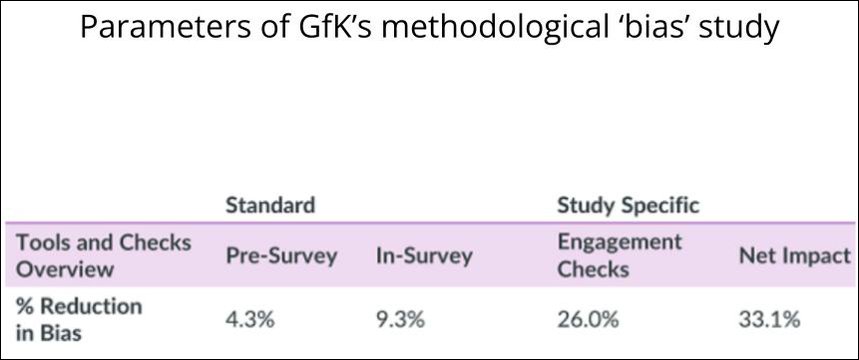
GfK, one of the biggest sources of consumer research used by media planners, Wednesday announced it is
overhauling its methodology with new "quality-control" procedures to reduce respondent bias.
GfK said the new "regimen" follows a series of methodological research studies comparing 21 panels
used by "three major" research suppliers, which found the steps could reduce bias by as much as 33%.
While GfK did not disclose which providers it analyzes -- or if its own samples were among
them -- it characterized the current state of consumer research as a "radically altered survey environment, and said it will continue tracking the "quality metrics" of sample providers.
"GfK
has devised a new, multi-pronged approach to online data quality," the company said, disclosing addition of three new steps -- "pre-survey tools," "quality control metrics," and "plausibility checks"
-- to reduce bias and boost confidence in its own sample pools.
While GfK did not single out how and why consumer research samples have degraded, it alluded to "a variety of factors,"
including "survey-taking bots," "click farms," "professional" survey takers, and "inattentive respondents."
GfK said it was able to calibrate the degree of bias by comparing respondent
"overstatements" on their answers to questions "proven to be marketers of sample representativeness," including:
The company said it also found certain demographic groups – including males, Hispanics, and those from low-income households – "are
more frequently under-represented in sample sources or drive higher survey fail rates."